Keywords: Catherine Marshall
-

MEDIA
- Catherine Marshall
- 25 July 2014
8 Comments
There's something satisfying about subverting society's idea of what constitutes beautiful: female-led campaigns that flood the media with images of representative faces and bodies reinforce the absurdity of current 'beauty' standards. But this isn't really liberating. No longer is it only the physically exquisite who can pose naked; the plain and the imperfect must be welcomed, too, into the sacred circle of female objectification.
READ MORE 
-
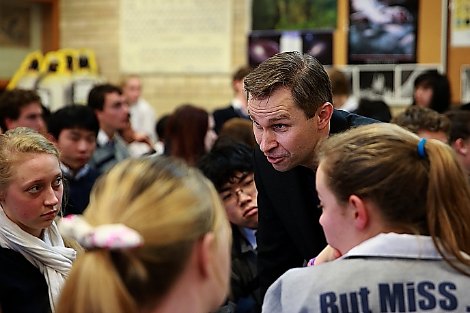
EDUCATION
- Catherine Marshall
- 27 June 2014
13 Comments
Amidst a whirl of media interviews and meetings, David Sinclair, professor of genetics at Harvard University and one of Time magazine's 100 most influential people in the world for 2014, paid a visit to his alma mater: a state school in suburban Sydney. State schools aren't the repositories of children too impoverished or unintelligent for the alternative; they're the living manifestation of democracy, egalitarianism, multiculturalism and ecumenism.
READ MORE 
-

INTERNATIONAL
- Catherine Marshall
- 30 May 2014
4 Comments
It had been a long journey for the family gathered in the Cambodian office of Jesuit Refugee Service, but their search for a safe environment amidst people who would treat them kindly was not yet over. Genuine refugees set their compass for Australia expecting to find the democratic, resourceful and accountable country of which they have heard. The Coalition's reprehensible 'Cambodia solution' shows just how wrong they are.
READ MORE 
-
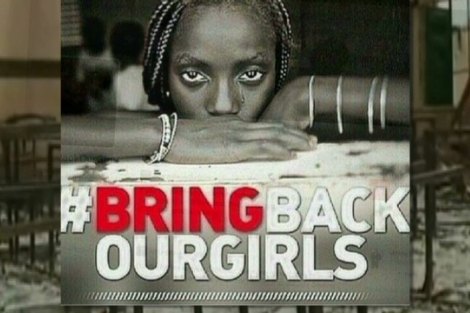
INTERNATIONAL
- Catherine Marshall
- 12 May 2014
7 Comments
It would be foolish to believe that female liberation can occur in a vacuum: as long as there are girls and women being brutalised in the DRC, schoolgirls being sold into slavery in Nigeria's border regions, girls around the world are being subjected to female genital mutilation and women being supressed by religious ideology, then the acquisition of our own freedoms — flawed as they are — is a hollow victory indeed.
READ MORE 
-

INTERNATIONAL
- Catherine Marshall
- 02 May 2014
15 Comments
For feminists who have fought for generations against sexism, the argument that men should be excised from children's orbit lest they commit the same atrocities of which a small percentage of other men are guilty is chilling. It rubber-stamps the notion that people's character and behavioural choices are determined by their gender, and presupposes that individuals can be judged on the basis of their group's collective history.
READ MORE 
-

MEDIA
- Catherine Marshall
- 10 April 2014
7 Comments
I got into an argument on Twitter yesterday about Golf Digest's use of a model on its cover rather than a female professional golfer. My opponent assured me that a 'gorgeous girl who modelled for a magazine is no harm' and that it must be 'miserable' to be opposed to every magazine that presented women this way. It is miserable. For most women, objectification is so commonplace that they have learned to live with it as one would a disability.
READ MORE 
-

INTERNATIONAL
- Catherine Marshall
- 15 January 2014
1 Comment
I said my own private goodbye almost two years ago, when I visited Robben Island on a trip back to my homeland of South Africa. That journey across Table Bay, towards the tiny green cell in which you lived for much of your 27-year incarceration, took me not so much to an outpost of apartheid as to the birthplace of democratic South Africa.
READ MORE 
-
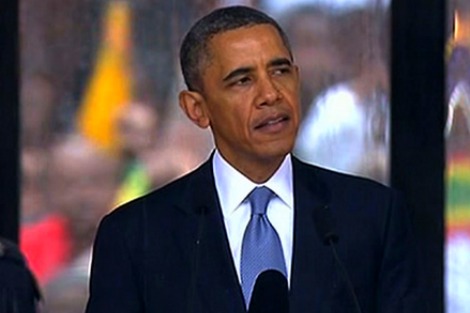
INTERNATIONAL
- Catherine Marshall
- 12 December 2013
6 Comments
People respond well to heroes, especially those people who have had their rights subjugated by others. But Obama, with his swagger and rhetoric, was basking in the reflected glow of Mandela's hard-won glory. His address fulfilled the collective expectation that the almost-saint Mandela be eulogised by a man of comparable stature, but it also afforded him a global platform on which to polish his own ego, to reinforce his importance on the world stage.
READ MORE
-

INTERNATIONAL
- Catherine Marshall
- 09 December 2013
13 Comments
I said my own private goodbye almost two years ago, when I visited Robben Island on a trip back to my homeland of South Africa. That journey across Table Bay, towards the tiny green cell in which you lived for much of your 27-year incarceration, took me not so much to an outpost of apartheid as to the birthplace of democratic South Africa.
READ MORE
-
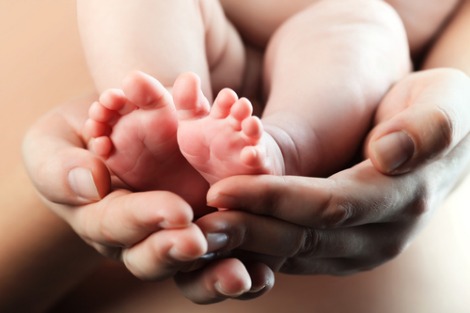
INTERNATIONAL
- Catherine Marshall
- 24 July 2013
15 Comments
For all the intrusions this tiny prince will have to endure in the years that stretch ahead, there will exist, as a salve of sorts, the incalculable benefits that his social status has randomly afforded him. We shouldn't diminish the joy of the royal couple, but we should be wary of allowing our sustained and fawning attention to further entrench the idea that some people are inherently more valuable than others.
READ MORE 
-
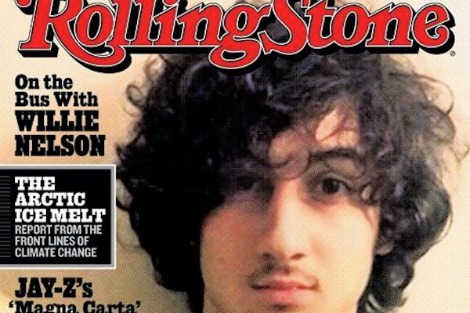
MEDIA
- Catherine Marshall
- 22 July 2013
19 Comments
Glory is the preserve of the patriotic American. Never was this belief more obvious than when Rolling Stone dared to publish on its cover a photograph of the alleged Boston bomber, Dzhokhar Tsarnaev. The ensuing public outrage has invoked the stiflingly patriotic adage adopted by George W. Bush shortly after the terrorist attacks on the Twin Towers: you're either with us or against us.
READ MORE 
-

AUSTRALIA
- Catherine Marshall
- 08 March 2013
17 Comments
Western feminism rejects women who don't ascribe to certain rules, such as putting children in care, pursuing a career or even disliking men. Young women looking for an antidote to such aggressive, individualistic feminism may turn to Africa, where community-centric, gender-inclusive ideologies have been espoused for decades.
READ MORE 